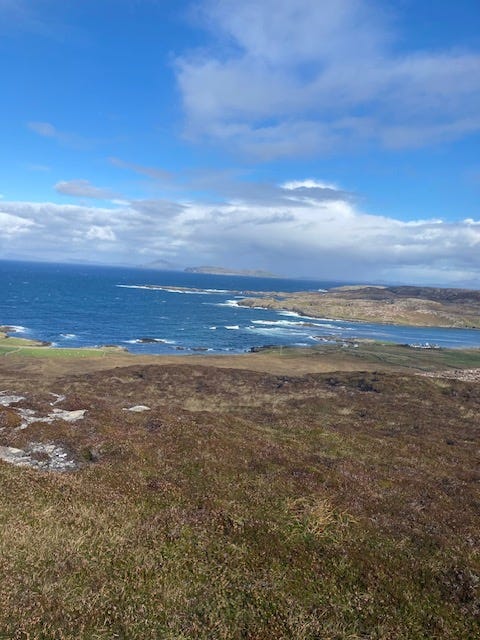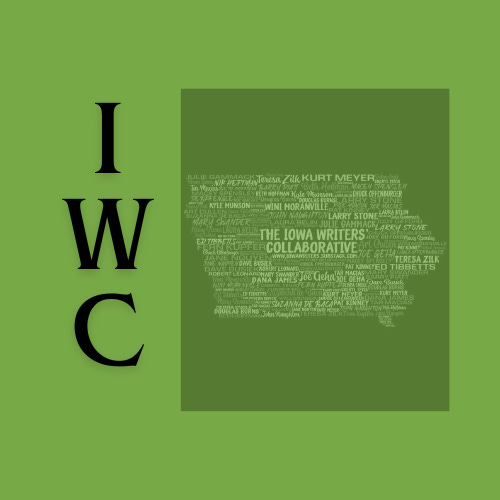
On February 28, 1879, whip in hand, Father William Rhatigan threw open the schoolhouse door on Omey Island, Ireland, demanding the return of his “stray sheep.” He was looking for school children “seduced away from their faith.”
1879 was a year of hardship with bad weather, failed crops, and bad debts. Once again, the impoverished people of Claddaghduff found themselves starving as they had been during the Great Famine when they were described as “famished dogs,” suffering the agony of hunger.
Once again, the people of Claddaghduff found themselves pawns between the conflicting powers of the Catholic Church and the Anglicans. The Society for Irish Church Missions to the Roman Catholics had set up schools, churches, and orphanages in the area with feuds breaking out between the two sets of clergy.
The Society had blamed the Irish Catholics for their own demise during the Famine, believing their starvation was a judgment from God for their poor choice of faith. The Society distributed placards, pamphlets and flyers denouncing the Catholic Church.
The local Catholic members felt insulted, yet nothing was as offensive as the way the Anglicans rewarded converts with a bowl of soup, shelter, clothing, and perhaps some employment. In turn, the converts were subject to ridicule, scorn, and shunning by their Catholic communities, so they often jumped back and forth between religions and became known as soupers and jumpers.
Father Rhatigan had heard a rumor that the Omey Island schoolmaster was attempting to convert his pupils. Rhatigan had marched over the strand to Omey Island to the schoolhouse, determined to save the children from this fate, preventing William Lindsay MacNiece, the teacher, from turning the students into jumpers. MacNiece blocked the door, arms outstretched. Rhatigan raised his large whip into the air.
“Blackguard!”
Rhatigan and MacNiece scuffled, one man punching the other.
Rhatigan’s heavy stick came down on MacNiece.
The schoolchildren scattered and hid.
Rhatigan’s temper and strength was fierce. It took MacNiece with the aid of his wife, daughter (Charlotte), son (Frederick), and two other teachers, to push the priest out the door.
Then word spread throughout the area. Father Rhatigan was almost murdered by MacNiece!
An angry crowd stormed the schoolhouse, stones flying, window panes shattering.
The following Sunday in Claddaghduff, Father Rhatigan raged from the pulpit, preaching a sermon in both Irish and English, detailing how he was ‘near being murdered’ in the school by six persons including MacNiece and his family. Rhatigan urged his congregation to fight back. “If you are insulted by a jumper on the road, you are to take action.”
Other schoolhouses throughout the area were burned down to the ground. Stones were thrown at an orphanage. Local children beat the children of the converted Cleggan postmaster. An Anglican minister and his daughter were “severely assaulted.” Other Protestants had their carts of turf pushed into bog holes and their crops destroyed. Women with blackened faces stoned converted women. One hundred extra policemen were called to Clifden.
MacNiece was harassed. He asked for police protection and two sub-constables moved into his house on Saturday, March 22.
On Sunday, March 23, MacNiece and his family, accompanied by the police officers who were armed with rifles, walked to church in Claddaughduff. They were met with a mob, throwing stones. The MacNeices ran to Michael Lynch’s house, my great-grandparents’ cottage, for refuge.
I imagine the scene: the family gathering together, having a meager meal in their kitchen. Many small Lynch children take up the space, my grandfather, about a year old. Surely, they know about the unrest between Father Rhatigan and William MacNiece. Maybe the Lynches were in the pews the day Father Rhatigan told the parishioners to avenge his attack on Omey Island.
Now suddenly, here in their cottage, the door flies open and William MacNiece, blood running down his face, barges in with his family. Two police officers guard the door, but the mob is growing larger and more agitated in the front of the house. Fighting breaks out, the mob trying to take away the rifles from the guards. People are knocked unconscious on the road.
Mary Lynch, my great -grandmother, hides MacNiece’s young daughter Charlotte in the loft. I imagine the other Lynch children ducking down into any other small spaces they could find. A window shatters, and one of the mob tries to squeeze in through that opening. Father Thomas Flannery, a local priest, has arrived on the scene with other constables. They pull the man out of the window by his legs.
Others from the mob ram the back door. The crowd enters the house and begins beating MacNiece. He is kicked and bruised, beaten with a thick stick, his clothes torn, his coat covered with blood. Charlotte is pulled down from the loft and she suffers a cut on her cheek.
One of the police officers, fearing for MacNiece’s life, fires into the crowd, but no one is injured, although rumors quickly fly. A woman has been shot and killed at the Lynch cottage.
At last, Father Flannery enters the house and sternly talks to the mob. They disperse. That evening MacNiece is taken to the police barracks for protection and moved to Dublin the following day. His wife and children follow some months later. And the episode becomes known at the Omey Riots.
Years later in 1927, my grandfather and three of his siblings were settled in the United States.
Louis MacNiece, the famous poet and grandson of William, returned to Omey Island with his father. In his memoir The Strings Are False, Louis MacNiece described Omey as a “small roadless island covered with crisp grass and when the tide is out you reach it across the sands.”
There, he met an islander woman with a “brogue as rich as a pint of stout.” She told Louis that when the MacNieces had gone away (his father had been about 9 years old), the potatoes had stopped growing on the island, and everyone had gone to America. “If my mother was alive now you could hear her crying the length of the island.”
Louis MacNiece wrote: It was a country I had known, mournful and gay with mournful and gay inhabitants, moonstone air and bloody with fuchsias. The mountains had never woken up and the sea had never gone to sleep and the people had never got civilized.
“Never go back,” my grandfather had told my mother in the States. When I was about 9 years old, she recalled his words to me without commentary, but I knew then that no one ever had the money to go back. And I could sense both the sorrow and the longing that this advice carried. “Never go back.”
Thank God I never listened.
I am happy to be part of the Iowa Writers Collaborative. Please read and support us through the Sunday Round-Up.








Harrowing story. Timely.
Incredible story. Can't help wondering about the chances of these things happening here in the near future ..